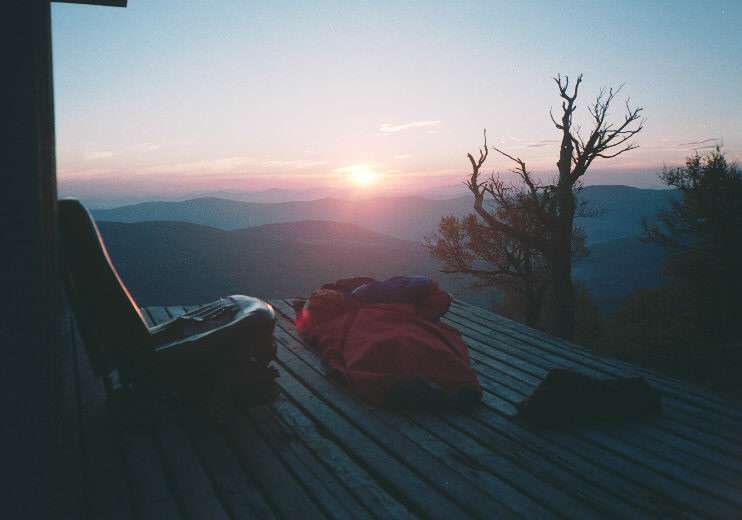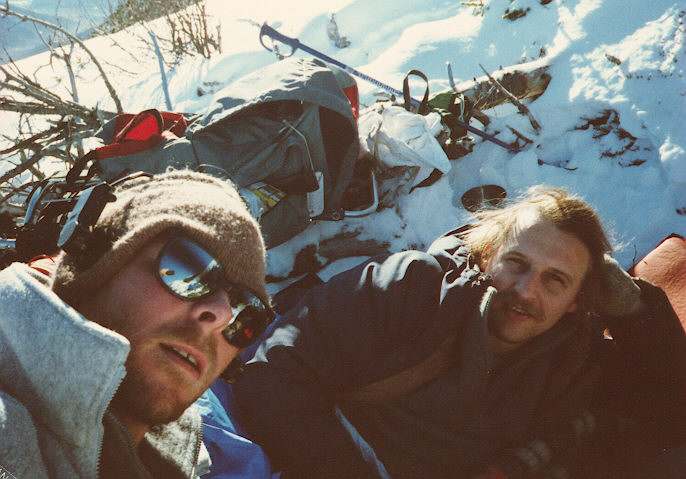Bivies
in the High Peaks
Camping
without a tent, using a waterproof breathable sleepingbag cover instead.

Bivy Sack (Clycops Bivy Sack, made and sold by REI) on summit of Mount Ellen,
Long Trail, Vermont

Tim and Dann in bivouac on Mount Washington, near Glen Boulder
It is real easy to separate the new
hikers from the seasoned veteran hikers.
Those who have been hiking the longest usually carry the lightest packs. A lot
of backpackers carry a big heavy expensive tent, and only spend about 7 hours
in the thing! You really don't need all the junk that a lot of beginning hikers
carry in their packs. When your overnight pack weighs 20 or so pounds, you can
bounce along the trail, and not even sweat. When your backpack weighs two or even
three times that, you'll be huffing and puffing, stopping alot to get air, and
even worse, tearing the heck out of your tendons and ligaments. I've spent a lot
of hours in the doctors office, getting my knees and ankles rehabbed. Ever since
I quit carrying all that heavy unnecessary crap, I can hike up and down all day,
then go for a long stroll after supper. Here is a hint; buy a cheap used scale,
and weigh all your "stuff". Do you really need a two and a half pound,
fifty dollar thermarest pad to sleep on for six hours? I'd never trade my twelve
ounce, nine dollar, ten year old black closed cell ensolite pad for your thermarest.
Do you really need to dish out $$ for a camelback water carrier? Wake up! You
are a heck of a lot better off using three or four (or more) 20 or 32 oz. plastic
soda bottles!
Webpage created by TimD, © 1997-2000, (updated 4/25/02)


